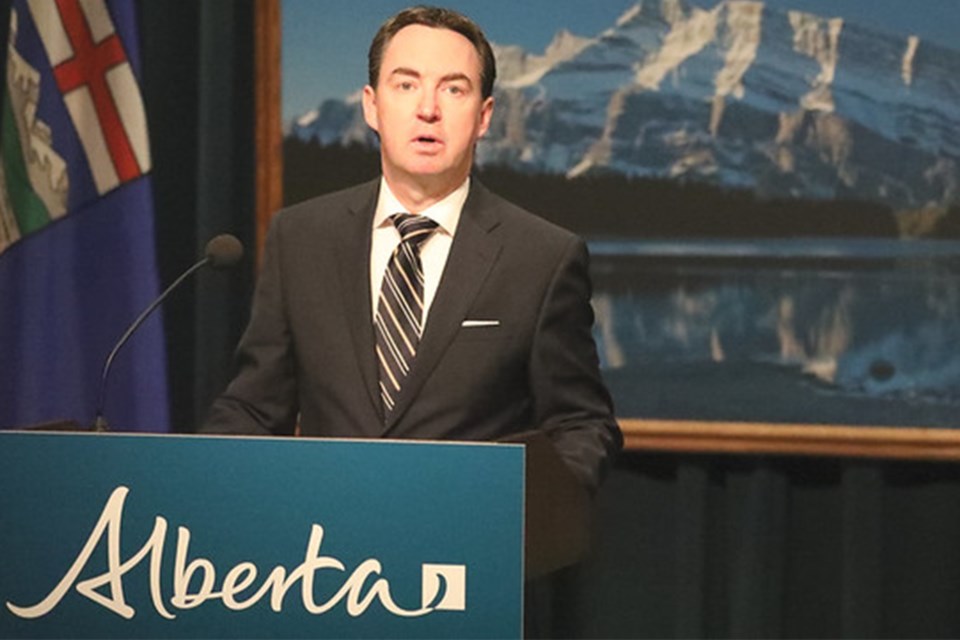A new provincial government program aimed at improving the recruitment and retention of family physicians in rural Alberta is getting mixed reviews.
During a news conference Monday, Alberta Health Minister Jason Copping announced the Rural Education Supplement and Integrated Doctor Experience (RESIDE) program, which will see $6 million spent over the next three years to bring 60 new family physicians to rural Alberta.
“Getting enough physicians to rural areas of the province is an ongoing challenge, just as it is in other parts of the country, and COVID-19 certainly hasn’t helped,” said Copping. “We are committed to ensuring that Albertans have equitable access to physicians no matter where they live.”
The program is a “real solution that will get more doctors in rural areas starting this fall” and “will be instrumental in attracting new family physicians to underserved communities throughout Alberta,” he said.
The program will provide $60,000 toward undergraduate tuition fee reimbursement, and a remote community incentive ranging from $20,000 to $40,000 depending on the community’s location.
“In exchange the new family physicians will be required to provide three years of service in a designated rural community,” he said.
Fifteen communities have been earmarked for the first year of the program: Fox Creek, Grande Cache, Fort Vermilion, Wabasca, High Level, Rimbey, Lloydminster, Milk River, Cold Lake, Lac La Biche, Rocky Mountain House, Fort Macleod, Barrhead, Ponoka and Athabasca.
Other communities eligible for the program in 2023 and 2024 will be announced later, he said.
Interested physicians can start applying under the program starting Feb. 1. The program will be open to family medicine resident physicians completing residency training in 2022, he said.
Asked by Great West Media if the lack of rural physicians in Alberta has reached crisis levels, Minister Copping said, “This is an issue that is across the country. We’ve had challenges in terms of attracting and retaining physicians in rural areas for some time. We know that we need to address this. This program is part of that, to be able to deal with the issue.”
Dr. Gavin Parker is board chairman of the Rural Health Professions Action Plan. He called the RESIDE program a “long-awaited opportunity for physicians who are just beginning their practice in rural Alberta and a chance to explore what it is like to live and work in these communities.”
“We believe the RESIDE program will play a pivotal role in attracting physicians to Alberta’s rural and remote communities,” he said.
Katrina Taylor is student co-chair of Family Medicine and Rural Medicine Interest Group, University of Calgary Cumming School of Medicine.
“People in rural Alberta deserve access to high-quality sustained, dependable and comprehensive health care in their hometowns,” said Taylor during the press conference.
“Without such access to rural doctors, more patients end up in emergency rooms. Creating access to rural family physicians is a way to alleviate pressure within the health-care system and to increase health outcomes, as well as lowering health-care costs.”
She called the RESIDE program an “important step towards increased rural health-care access.”
The RESIDE program “falls woefully short” of what needs to be done, says NDP health critic David Shepherd.
“Incentive programs are not a new idea but every doctor will have to weigh these dollars against the knowledge that the UCP maintains legislation that allows them to rip up any doctor’s contact on a whim,” Shepherd said in a release issued following Monday's press conference.
“We are seeing an alarming increase in emergency room closures, bed closures, cancelled surgeries, closed labour and delivery rooms, and Albertans without access to a family doctor, especially in rural communities.”
Minister Copping told Great West Media that other efforts are also underway to bring more physicians to rural Alberta, including recruitment in other provinces and outside Canada.



